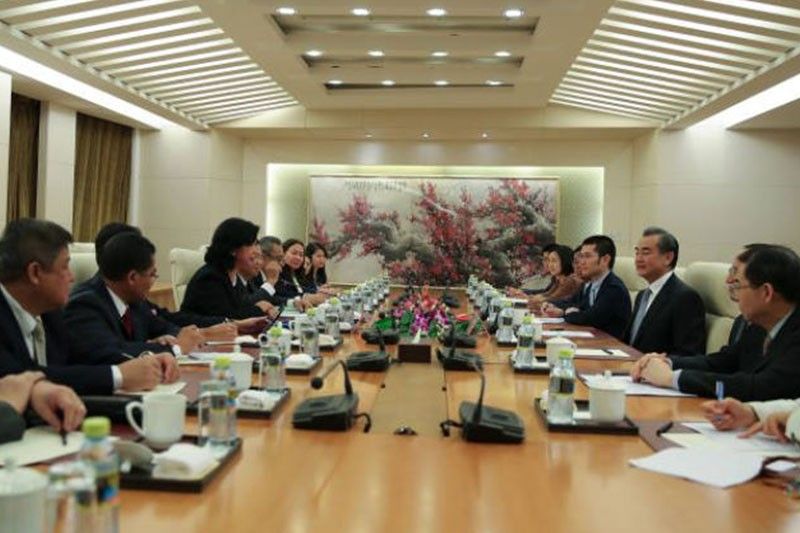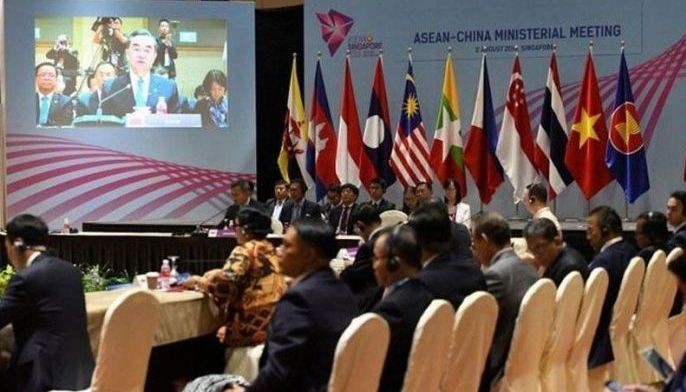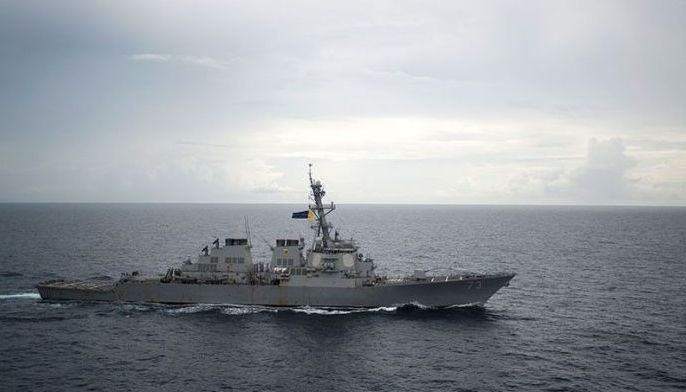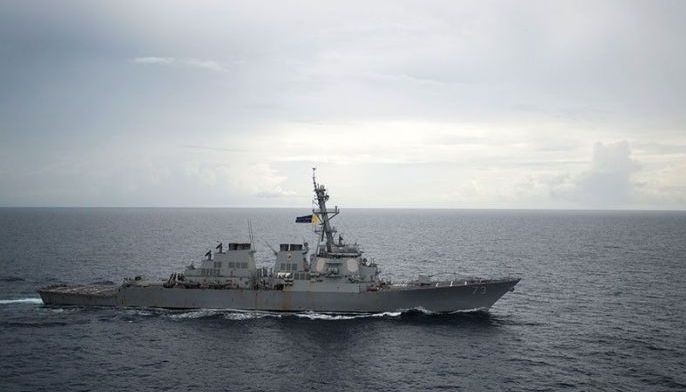China using bilateral ties to block ASEAN from acting on sea row — report

MANILA, Philippines — China has prevented the Association of Southeast Asian Nations (ASEAN) from acting as a bloc in countering its dominance in the disputed South China Sea, according to a report from a Washington-based think tank.
The National Bureau of Asian Research released a special report titled "Tenets of a Regional Defense Strategy: Consideraations for the Indo-Pacific" authored by former US Navy Adm. Jonathan Greenert.
In the report, Greenert listed the South China Sea as the third US security concern, next to North Korea and the East China Sea.
Overlapping claims of Southeast Asian nations in the South China Sea make it hard to anticipate how a conflict would play out in the region, the report read.
"China has exploited that reality and leveraged its own overwhelming power to gradually change the status quo in the region while avoiding actions that would lead to war," Greenert said.
He also noted that efforts to settle the disputes using international law have not been effective in deterring Beijing's activities in the region, such as installing military capabilities on its artificial islands.
"China has sought to pressure individual actors into bilateral arrangements, in the process
avoiding multilateral solutions," Greenert said.
Bilaterals between Philippines, China
An example of this would be the bilateral consultation mechanism between the Philippines and China, which does not incorporate the July 2016 ruling of a United Nations-backed tribunal on the disputed waterway.
While several member-states such as the Philippines, Malaysia and Vietnam have overlapping claims with China, the ASEAN cannot act on this matter without consensus.
"While multiple parties have built on features in the South China Sea in the past, China’s activities over the last several years have easily outpaced those of other countries," the former US Navy official said.
Beijing has constructed runways, radar systems, surface-to-air missile system and electronic jamming equipment on its outposts. In May, China deployed a nuclear-capable H-6K bomber aircraft at Woody Island, its largest base in the Paracel group.
"China’s military power, when combined with the resources of the Chinese state, dwarfs that of any one of the other claimants," the report read.
China prepared for US reaction
The report also noted that there was evidence the Chinese leaders were prepared for a "more robust reaction" from the US.
Beijing might have recalibrated its activities as a consequence but regional countries see Washington's response to Chinese activities as insufficient, according to the report.
"When there was no such response, the island-building campaign continued apace," Greenert said.
China's capacity to deny freedom of maneuver to US and its allies in the region continue to be a challenge to Washington especially now that the latter seeks to maintain presence in the Indo-Pacific.
"The United States has said that it takes no position on conflicting claims, nor is it in a position to enforce international law or the tribunal ruling.101 While conflict seems unlikely in the near term, the changing status quo calls into question the Unites States’ commitment both to its allies, especially the Philippines, and to a 'free and open' Indo-Pacific," the admiral said.
A few days ago, American warship USS Decatur sailed within 12 nautical miles of Gaven and Johnson reefs in the Spratly Islands as part of its freedom of navigation operations.
China responded to this by sending its own warship within yards of the US destroyer, forcing it to change course.
The US Pacific Fleet described the encounter as "an unsafe and unprofessional maneuver in the vicinity of Gaven Reef in the South China Sea."
- Latest
- Trending































